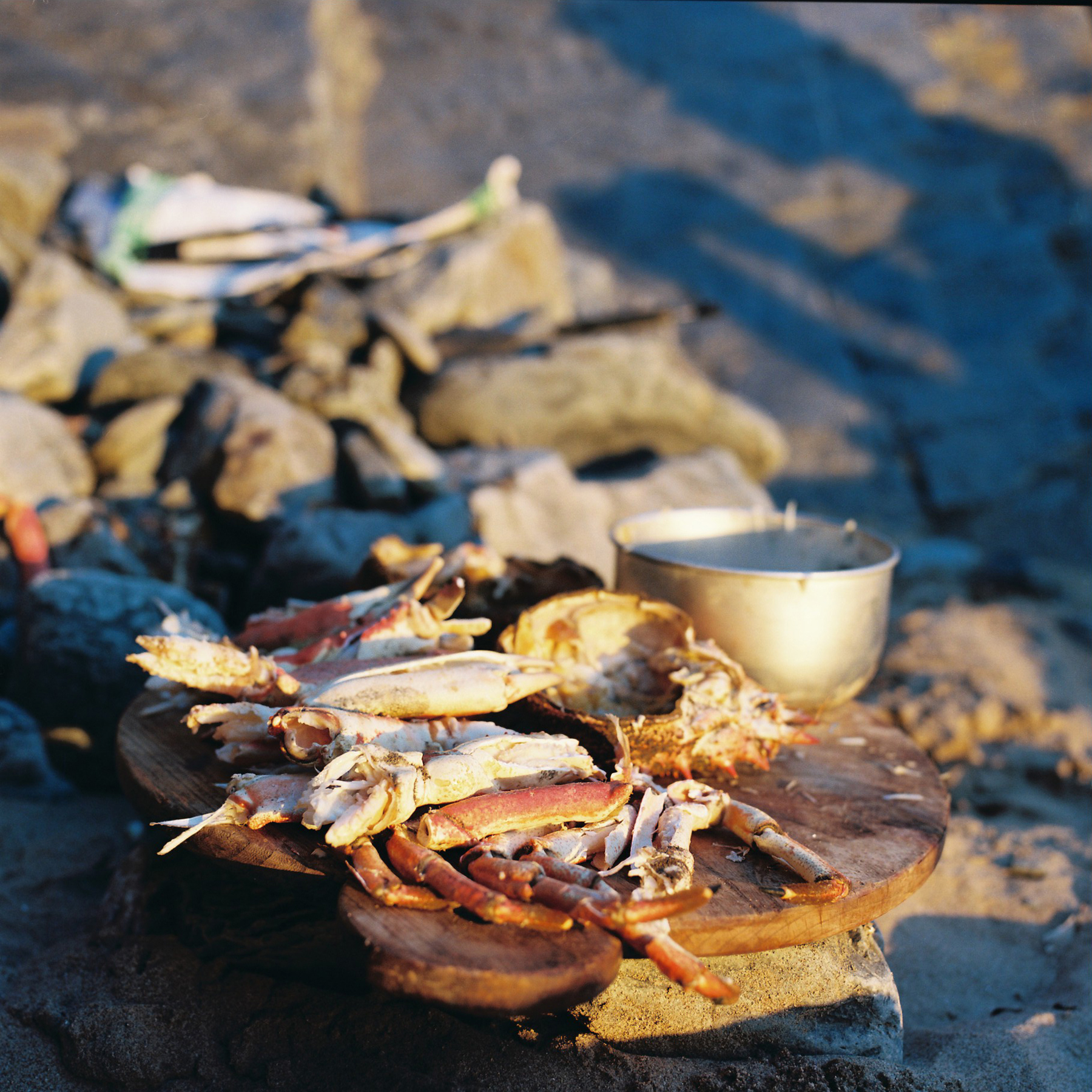Spider crabs are curious creatures. With their remarkably long legs, strong claws and prickled shells, their build is just as fascinating as their nature and habits. fforest chief has been observing these creatures for years and has a unique insight into the secret lives of spider crabs as they exist and thrive on the Welsh coastline.
He shares this rare and beautiful insight below:
'They start coming in around the beginning of May and usually peak around about now, the beginning of June. About five years ago, numbers seemed to peak. Last year's weren't very good and there was an idea that the crabs were moving further north. But in fact, this year, the evidence shows that they’re back.
Up until about 7 or 8 years ago, the local fishermen would throw spider crab back into the sea because there was no commercial value in them. The story goes that they used to pull one claw off a male crab and then throw it back. The cock crabs have much bigger claws whilst females don't have any claws to speak of.
Interestingly, both male and female spider crabs are filter feeders and foragers, and that creates, to my mind, a very sweet tasting flesh. As opposed to brown crab which, actually, if you taste them side by side, tastes quite fishy by comparison. The white meat is really delicate and beautiful in a spider crab.
The reason the cock crabs come closer into the shore is that the females come in to shed their shells. Their soft shelled state is the only time the cock crabs can mate with them. Its an odd situation because they’re actually mating when they're at their most vulnerable from other predators, like sea bass and other big fish.
When the cock crabs come in, frequently you'll find the male and female crabs coupled together. Once they’ve been fertilised they stick together for a week or two, with the cock crabs wrapping their claws around the female. Once the males have mated they tend to disappear and leave the females behind. There are places along the coast where you can see thousands of females in huge mounds, left behind after their mates have gone.
I avoid taking any female crabs at all during the mating season. When they’re coupled in that way I leave them well alone. Its not always obvious that they’re coupled though, so when you see a nice big cock crab, and its got its female underneath it, if the female drops out mid water there’s a sort of palpable desperation of the male to fight to find the female and re-clasp itself. It seems to be more than an instinct, it might even be love.
I've been an avid explorer of coast for many years, especially the Welsh coastline. The waters around the UK are so teeming with marine life that snorkelling is a real pleasure, but its a fleeting one because of that issue of water clarity. So you have to take up the opportunity when you can, regardless of what work commitments or anything else you might have.
Diving for spider crabs is always a fascinating adventure. I was very amused to read a section of a book written by George Monbiot where he describes a sort of battle with the spider crab in order to catch it. In fact, it could be nothing further from the truth. The skill is in choosing a day when the waters are clear, to then dive down deep enough to find the bigger ones, and to catch them with a gentle hand.
When I first started diving I used my bare hands to grab the shell. My palms were full of prickles, bits of the spine surface of the body that is actually slightly poisonous. My hands were constantly irritated during the summer. But now, I've learned two things from my experiences: to wear neoprene gloves, and to not panic and grab, but to pick them up very gently and turn them upside down so that they wrap their claws around their body in a protective state. They’re actually very passive in this state, you can handle them quite easily in this way.






